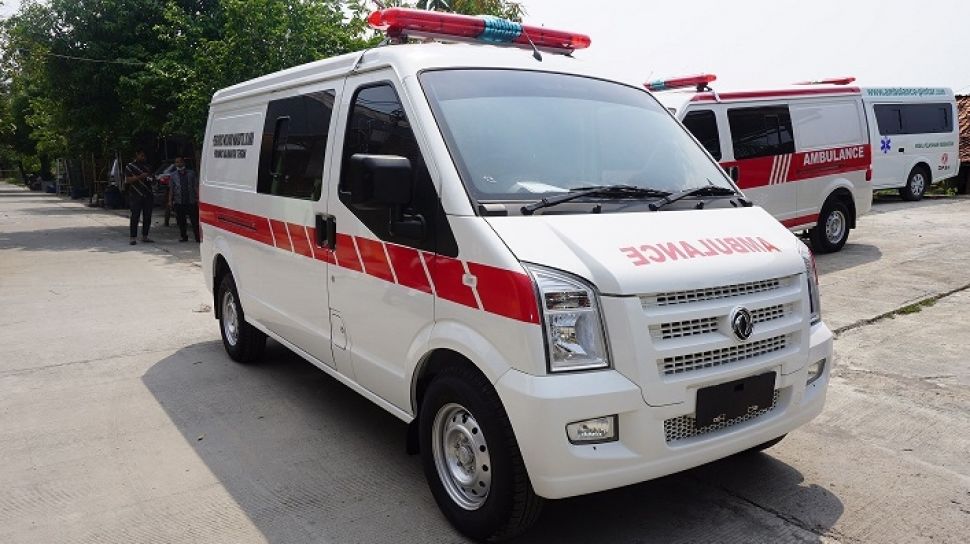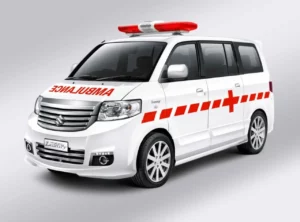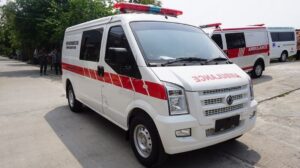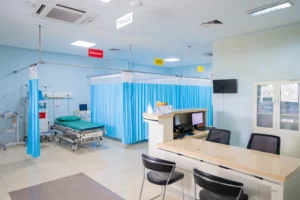
Gili Meno is often described as the most tranquil of the three Gili Islands—a place where time slows down, and silence is part of the charm. With its quiet beaches, turquoise waters, and romantic ambiance, Gili Meno is the perfect retreat for honeymooners, nature lovers, and anyone seeking peace. But beneath its serene surface, the island faces a critical question: what happens in a medical emergency?
With no cars, no motorbikes, and limited infrastructure, emergency response requires creativity and coordination. That’s where the ambulance Gili Meno system comes in—a unique approach to saving lives on an island built for rest, not rescue.
In this article, we explore how Gili Meno manages emergency healthcare, how the ambulance system functions without roads, and what travelers need to know to stay safe on one of Indonesia’s most beautiful islands.
Gili Meno: The Quietest of the Gilis
Gili Meno is located between the larger islands of Gili Trawangan and Gili Air. It’s the smallest and least developed of the three, with a population of only a few hundred residents. There are no motorized vehicles, no nightlife, and no major medical centers.
Instead, Gili Meno offers nature reserves, bird parks, dive sites, and the iconic underwater sculptures—making it a hotspot for couples and solo travelers seeking solitude.
But even in paradise, things can go wrong. Whether it’s a coral cut, heat exhaustion, allergic reaction, or a diving-related incident, emergencies happen—and fast response is vital. That’s why the ambulance Gili Meno system, though modest, plays such an important role.
What Does “Ambulance Gili Meno” Mean?
You might be surprised to learn that there are no conventional ambulances on Gili Meno. The island’s sandy paths and no-motor policy mean there are no vans, sirens, or flashing lights. Instead, the ambulance in Gili Meno is a system of people, carts, boats, and communication working together to deliver emergency care.
Here’s how it works:
- Horse Carts (Cidomo) or Stretchers
In the absence of electric or motorized vehicles, injured or sick individuals may be transported via cidomo or carried on stretchers to the nearest medical point. - Local Clinics and First Responders
Gili Meno has at least one operational clinic that can handle minor injuries and provide basic life support. These clinics are often staffed with trained nurses or general practitioners. - Evacuation Coordination
In moderate to severe cases, the patient is transported by boat—either to Gili Trawangan for better-equipped clinics, or to mainland Lombok, where full-service hospitals and emergency rooms are available. - Ambulance Boat + Land Ambulance
The term ambulance Gili Meno may also refer to the combined system of boat transfers and ambulances waiting on the mainland to continue medical treatment.
Common Medical Emergencies on Gili Meno
While Gili Meno is far from chaotic, visitors should still be aware of the types of emergencies that can occur:
- Coral and reef injuries from swimming or snorkeling
- Dehydration and heatstroke
- Allergic reactions (especially to insect bites or seafood)
- Diving-related incidents, such as barotrauma or decompression sickness
- Food poisoning or gastrointestinal distress
- Accidents from bicycles or falls on uneven terrain
- Sudden illnesses, like asthma attacks or chest pain
With limited facilities, every second counts—making the ambulance Gili Meno process essential for saving lives.
How to Get Medical Help on Gili Meno
If you find yourself in a medical emergency on Gili Meno, here’s what to do:
- Notify Your Hotel or Host
Most resorts and villas have procedures in place and can contact the nearest clinic or evacuation team immediately. - Go to the Nearest Clinic
If the patient is mobile, walk or use a bicycle/cidomo to reach the clinic. They will assess the situation and arrange evacuation if needed. - Call Gili Medical Network or Tour Operator Support
Some tour companies and dive centers are linked with medical providers and can fast-track emergency services, including boat evacuation. - Coordinate for Transfer to Gili Trawangan or Lombok
If the situation requires advanced care, clinic staff will organize a boat ambulance transfer to the nearest suitable facility.
The Importance of Travel Insurance
The ambulance Gili Meno system is not government-funded or free for foreign tourists. If you require evacuation or treatment in a private hospital, costs can quickly escalate.
We strongly recommend having comprehensive travel insurance that covers:
- Medical evacuation
- Emergency hospitalization
- Diving and water sport incidents
- Outpatient care and prescriptions
Without insurance, a boat transfer and hospital visit in Lombok could cost several hundred to thousands of dollars, depending on severity and speed required.
How Gili Meno’s Community Supports Medical Response
The local community in Gili Meno is small, close-knit, and incredibly supportive. Most islanders are trained in basic first aid, and many dive instructors are certified in emergency response.
Because formal infrastructure is limited, the community relies on communication, cooperation, and coordination. This human-centered approach makes up for what Gili Meno lacks in ambulances or paved roads.
In many cases, it’s your dive guide, guesthouse owner, or neighbor who becomes the first responder—another reason why Gili Meno remains not just beautiful, but also deeply human.
Challenges and Ongoing Improvements
While the ambulance Gili Meno system has saved countless lives, it’s not without its limitations:
- No 24-hour medical center: Clinics may not be open all night, especially in low season.
- Evacuation delays: Bad weather can delay boat travel to Lombok.
- Language barriers: Not all staff speak English fluently, which may slow down communication during emergencies.
- Limited supplies: Clinics may not have IV fluids, oxygen, or diagnostic equipment.
There are ongoing efforts by local NGOs and medical partnerships to improve conditions, train staff, and provide better tools for emergency care on the island.
Tips to Stay Safe While Enjoying Gili Meno
- Stay hydrated and wear proper sun protection.
- Use reef shoes or fins when snorkeling to avoid cuts.
- Be cautious with seafood if you have allergies.
- Avoid diving if you feel unwell, and always follow safety guidelines.
- Travel with basic medications, especially if you have chronic conditions.
- Save emergency contacts on your phone before arriving.
A Quiet Island With a Loud Commitment to Safety
Gili Meno may be the quietest of the Gili Islands, but its commitment to safety speaks volumes. The ambulance Gili Meno system may not come with flashing lights or sirens, but it reflects something even more valuable—a community-driven response to human need.
Whether you’re snorkeling among turtles, strolling barefoot down the coast, or simply soaking in the sunset, knowing there’s an emergency response system in place adds a layer of security to your peace.
Because even in paradise, preparation matters—and the people of Gili Meno are doing everything they can to make sure you’re safe from arrival to farewell.



